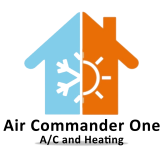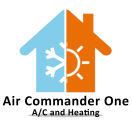Frequently Asked Questions About Air Conditioning and Heating

What is HVAC?
HVAC is short for Heating, Ventilation and Air Conditioning. HVAC is most often used to depict the whole heating and cooling system consisting of the duct work, air filters, humidification controls, and registers.
What is I.A.Q.?
I.A.Q. stands for Indoor Air Quality. Today, various products are available as add-ons to your existing heating and cooling system to improve the quality and healthiness of the air inside your home. These items include
- Electronic- or Media-Type Air Filters: Filtering the air within your home will help eliminate smoke, pollen, odor, dust mites and allergens. This will allow you to breathe easier, sleep better and enjoy your home more.
- Whole-House Humidifiers: Whole-house humidifiers provide consistent humidity levels throughout the home, and some models even adjust the humidity level automatically. The average heated home has a humidity level of less than 20%. The recommended humidity level in the winter should be between 35% and 45%.
- Air-to-Air Heat-Recovery Ventilators: These ventilator systems remove stale air from inside the home, while bringing in fresh air from the outside that is warmed during the transfer process.
Is sound an issue for heating and air conditioning?
Yes. Loud heating and cooling equipment contribute to sound pollution. Although no financial savings are tied to lower sound levels, the sound rating of a cooling system can have a considerable effect on comfort and enjoyment of your home. The sound level of an air conditioner or heat pump depends on a variety of factors, such as the age and make of the unit, and whether the compressor is insulated or not can contribute to the amount of noise it makes.
Although most heating and cooling systems manufactured today are quieter than ever before, it’s a goodidea to compare sound ratings when shopping for a new air conditioner or heat pump, particularly if the equipment location is near bedrooms or living rooms.
What is a Spring Tune-up and how much does it cost?
In addition to the professional visual inspection included with our System Inspection, a Spring Tune-up also includes a total maintenance cleaning and lubrication of the heating or air conditioning equipment components. Discover more here about Air Commander 1 Experts Heating & Air Conditioning’s Spring Tune-up steps . The fee for a tune-up is seasonal, and may generally fluctuate from $69 to $159.
What's causing my duct work to pop when the furnace starts or stops?
A popping disturbance is a typically sign of an under-sized duct design. It may have to do with greater air flow than the duct work is able to manage. Have a qualified company analyze your home’s ventilation system for proper design and recommend adjustments. Improper duct work layout can cause a number of ventilation and air quality problems, including excessive noise.
When substituting the outdoor system, should the indoor unit also be replaced?
The answer is, probably so. Here’s why.
Matched System Design: All air conditioner and heat pump outdoor units are speciallyfabricated to work with a matched indoor unit for ideal efficiency and performance. The consequence of this matched equipment is a coordinated, top-performance team that ensures dependability and efficiency. Air conditioner and heat pump outdoor units may ”run” with indoor units other than those for which they have been speciallydesigned; however, the effect would be a definite compromise in system performance.
Design Advances: Through the years, indoor blower coil units have undergone many design advances — especially in the areas of air handling performance, filtering efficiency and operating sound levels. A new outdoor unit will also comprise the latest design advances.
Higher Cooling And Heating Efficiency: The cooling and/or heating efficiency ratings that are posted for an air conditioner or heat pump are based on their performance as matched systems. While changing only the outdoor unit may consequence in improved efficiency compared to the old system, efficiency will be lacking from what it was designed to be, and your savings will be not as much as with a matched system.
Equipment Age: If an air conditioner or heat pump is 10 years old or more and needs to be replaced, the indoor unit is likely just as old and has been subjected to the same amount of degradation. Substituting both units means you won’t have to substitutethe indoor unit in a brief time period… you’ll have more years of efficient service with both units.
New Warranty: A new set of equipment also delivers you a new product warranty. Changing the indoor unit simultaneously with the outdoor unit results in peace of mind, knowing that the new warranty covers the entire system for the same period of time.
A Bargain: At first glance, replacing only the outdoor air conditioner or heat pump may appear to be a bargain. But, when you consider the lower cooling and heating efficiencies, decreased reliability and high cost of ownership that results, it’s not such a bargain. Replacing an entire system may cost more, but you get much more efficiency, reliability and comfort for years into the future.
Why is it important to have regular maintenance on my home comfort system?
You probably wouldn’t get a brand-new car and assume to never have to inflate the tires, change the oil and examine any atypical noises. Your home comfort system is similar to your car’s engine, it’s a mechanical device with a motor, electrical components… and even fuel. So it is essential to have routine maintenance of your home comfort system by a qualified technician. If not maintained properly and routinely, even the best heating and air conditioning equipment could experience complications and become less ‘fuel’ efficient over time.
How can I increase the efficiency and life of my home’s heating and cooling systems?
- Clean and replace your filters frequently.
- Your system will heat and cool more evenly when the blower is in the “on” position. The blower provides constant air movement throughout the home, and allows for better filtration.
- Install shades, drapes, shutters, or screens on windows that are exposed to extreme sunlight to keep room temperatures at moderate levels.
Why is my AC system freezing up?
There are an abundance ofpossibilities that can cause your HVAC system to freeze up; almost all of them usually need to be corrected by a professional technician. Determining the air filter is clean or replaced and making sure the airflow is not restricted are about the only tasks a homeowner should safely identify or handle themself.
Low refrigerant: In some cases, freezing up is initiated by a leak in the refrigerant lines. Weak solder joints, friction from piping rubbing or vibrating against an object, leaking valves or loose fittings can cause leaks. The length of time your system has been installed and the nature and location of the leak are the determining factors on whether to have the system repaired or replaced.
Dirty evaporator coil: Over time, the evaporator coil will become dirty. On these occasions, the results are similar to those of having a dirty filter. Gradually you will lose airflow, slowly enough that you probably would not realize it until it freezes up or is not cooling adequately. You will need to contact your local Service Experts sales and service center to remedy the problem.
Defective blower motor or relay: A blower motor running at an improper speed or not running at all can cause freezing. It can also be sporadic, starting at full speed and slowing down after it heats up. Or a relay could cause it to start one time and not the next. In either case, you will need to contact your local Service Experts sales and service center to correct the problem.
Should you discover that your system was freezing due to a dirty air filter, after replacing or cleaning the filter, you can hasten the thawing process by turning the system off and then turning on only the fan. If you have a heat pump system, you can try turning the system to heating mode until the ice has melted. After the ice has melted, switch the system settings back to normal. If the system refreezes, contact Service Experts Heating & Air Conditioning in your city to solve the problem.
Should I try to keep my air conditioning system from running too much?
Generally speaking, a unit that is either on or off is less expensive than one that keeps cycling on and off repeatedly. Every time your system starts up, it will use a lot of electricity and not produce much cooling. That’s why a smaller system is often more economical to operate: even though it runs nonstop and may deliver less comfort, it will usually consume less power than a larger system that cycles on and off.
What air temperature should my air conditioner produce?
The air temperature produced by your system depends on the temperature of the air going into it. Generally, the air produced should be 15°-20° below what enters the system. So if the entering return air is 80°, the exiting supply air should be about 60°-65°. However, that only works on a system that is operating properly and has been running at least 15 minutes on a warm, dry day with a home that is about 80° inside. On a milder day, with an indoor temperature 70, the air coming out should be 50-55.
At what temperature should I set my thermostat?
Temperature settings depend on the time of year and your personal preferences. In the summer, the average temperature setting is 75°-80°. In the winter 68°-72° is the norm. Remember, when leaving your house; try to avoid drastic temperature changes. Do not set your temperature back more than 5°; this will cause your unit to work harder to achieve the desired temperature setting.
What is two-stage heating?
Two-stage heating means a furnace has two levels of heat output: high for cold winter days and low for milder days. Two-stage furnaces start in the first stage, instead of reaching full capacity all at once. That means there is no sudden blast of air. The low setting meets household heating demands 80% of the time, allowing a two-stage unit to run for longer periods and provide more even distribution of heated air. Because the furnace operates mostly in its lower-capacity first stage, it burns less fuel than a furnace that always runs at full capacity and then has to shut off when the heating demand has been met.
During the winter, my heat pump delivers warm air, but not hot air, and will operate for long periods of time. Is that normal?
Yes, this is normal. A heat pump generally produces air that is around 80° and provides even comfortable, heating around the house – not a blast of intense heat. However, 80° may feel cool to your hand, which is usually closer to 90°.
Why does my heat pump system sometimes freeze up?
Several factors that can cause system freezing. First, if running in the cooling mode check your filters; restrictions in air flow can lead to freezing. Next, thaw the system out by turning off the cooling and running the fan. Also, try turning the system to the heat mode until the ice has melted.
If the problem recurs after checking for air restrictions and thawing your system thawed, schedule a service call with Air Commander 1. Our service technicians will check the refrigerant level. They may also have to clean the evaporator coil, check the blower speed and check for any intermittency in blower operation. A service technician can also evaluate other conditions that may make your system prone to freezing and recommend the best course of action.
What is I.A.Q.?
I.A.Q. stands for Indoor Air Quality. Today, various products are available as add-ons to your existing heating and cooling system to improve the quality and healthiness of the air inside your home. These items include
- Electronic- or Media-Type Air Filters: Filtering the air within your home will help eliminate smoke, pollen, odor, dust mites and allergens. This will allow you to breathe easier, sleep better and enjoy your home more.
- Whole-House Humidifiers: Whole-house humidifiers provide consistent humidity levels throughout the home, and some models even adjust the humidity level automatically. The average heated home has a humidity level of less than 20%. The recommended humidity level in the winter should be between 35% and 45%.
- Air-to-Air Heat-Recovery Ventilators: These ventilator systems remove stale air from inside the home, while bringing in fresh air from the outside that is warmed during the transfer process.
How important is air quality and what factors need to be considered?
An air quality system can greatly improve both your comfort and your health. The areas of air quality to consider are (1) purification, (2) filtration, (3) humidity control, and (4) ventilation. A wide number of air quality features come standard with many new heating and air conditioning systems; others can easily be added to existing systems. Contact Air Commander 1 to discuss your air quality options.
Do electronic air cleaners really work?
Electronic air cleaners can greatly improve home air quality and comfort levels. If you suffer from allergies or have pets, they’re a must. Some electronic air cleaners can even remove dust particles and pollen as small as .10 micron. Air Commander 1 offers a variety of air filtration devices. Talk to your Air Commander 1 Specialist to discuss your options.

